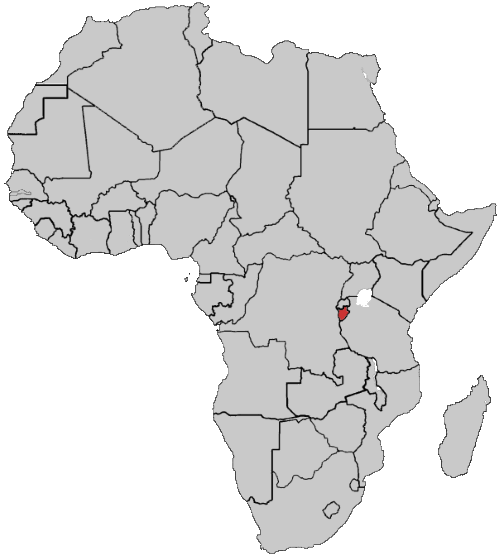


Considered part of Central Africa. Burundi's capital is Bujumbura. The southwestern border is adjacent to Lake Tanganyika. The Twa, Hutu and Tutsi peoples have lived in Burundi for at least 500 years. For more than 200 of those years, Burundi was an independent kingdom, until the beginning of the 20th century, when Germany colonised the region
Languages: The official language of Burundi is Kirundi, which is a Bantu language spoken by the majority of the population. Kirundi is used in government, education, and the media, and it is the language of instruction in schools. In addition to Kirundi, many people in Burundi also speak French, which is widely taught in schools and is often used as a second language in business and government. Finally, there are also a number of other languages spoken in Burundi, including Swahili, Kinyarwanda, and Zulu, among others.
Ethnic Groups: Hutu, Tutsi, and Twa
Belief Systems: Christian 67% (Roman Catholic 62%, Protestant 5%), indigenous beliefs 32%, Muslim 1%
Demographics:
Population: 9.07 million people (World Rank: 92nd) (2014 estimate)
Population Density: 915 people/mi^2 (People per Square Mile) (World Rank: 39th) (2014 estimate)
Population Growth: 1.85 %/yr (World Rank: 66th) (2013 estimate)
Life Expectancy: 54.1 years (World Rank: 219th) (2013 estimate)
Median Age: 17.7 years (World Rank: 181st) (2010 estimate)
Sites for More Information:
Map of Burundi
Worldatlas.com
Country Profile for Burundi
United Nations
Burundi
Wikipedia.org
Burundi - General Information
Encyclopedia.com
Culture and Tourism:
Burundi Travel Warning
Cautions when traveling to Burundi
Burundi Language Resource:
Learn Kirundi
Online resource for learning Kirundi
Government Related:
Burundian Embassy
in Washington D.C.
Burundian Government Websites
by Gunnar Anzinger. Note: most of the sites are in Arabic and French only

